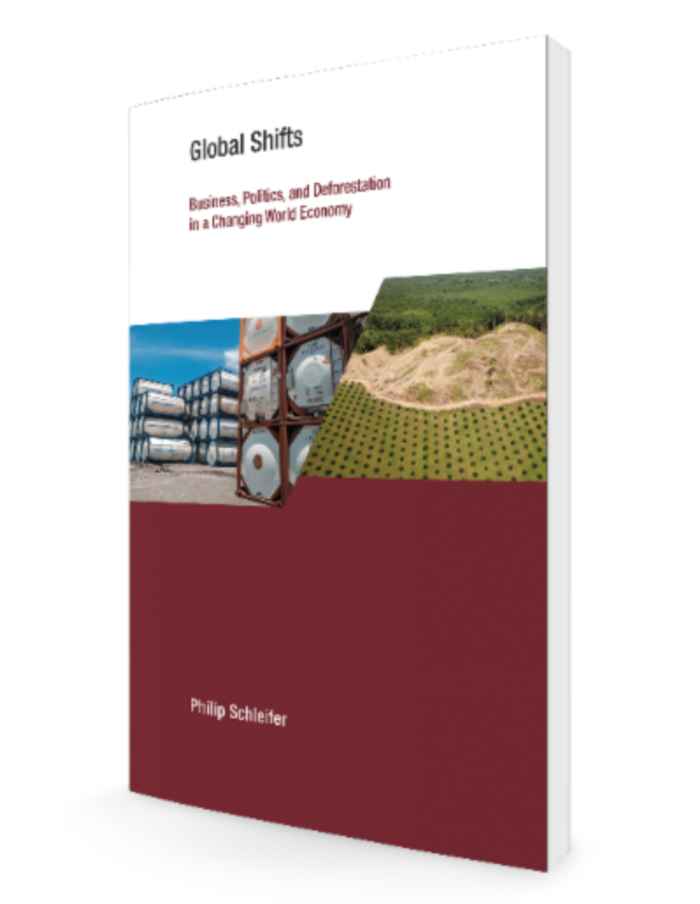Philip Schleifer's 'Global Shifts' uncovers the mismatch between trade and sustainability
6 September 2023
Growing mismatch
Schleifer starts by pointing out the shortcomings of corporate actions and private initiatives aimed at reducing deforestation. He explains that while these efforts were well-intentioned, they fell short due to larger changes in trade and consumption trends. Schleifer: ‘We see more standards and regulations, but there’s a growing mismatch between the coverage of these systems and the new patterns of consumption. Existing instruments are not able to capture the new geography of trade. Over the past 10 to 15 years, we for example saw a massive shift in Brazilian soy exports from Europe to China.’
‘Policymakers should look at the bigger picture, considering the macroeconomic forces at play.'Philip Schleifer
Global shift
This shift has significant impact on deforestation. The demand for commodities like palm oil or soy, strongly linked to deforestation, has increased. Therefore, the existing methods used by companies from developed countries to regulate the supply chain have not effectively addressed this evolving global shift. As a result, deforestation has expanded because of the gap between the regulating mechanisms and the changing dynamics of trade.

Focus on new patterns
The key message of ‘Global Shifts’ is that the approach to sustainability governance needs to evolve beyond the narrow focus on policy design. Schleifer explains: ‘Policymakers should look at the bigger picture, considering the macroeconomic forces at play. More attention needs to be given to emerging economies and the new patterns of consumption and trade that contribute to deforestation. Collaboration between involved countries is needed to design effective sustainability policies and regulations.’
While Schleifer's book is primarily targeted at an academic audience, its implications extend to policymakers and industry stakeholders. His book encourages policymakers to shift from an Eurocentric perspective towards a broader global governance perspective .
Successful comprehensive approach
In conclusion, 'Global Shifts - Business, Politics, and Deforestation in a Changing World Economy' offers a thought-provoking analysis of how global economic shifts influence deforestation and sustainability governance. Philip Schleifer’s research provides valuable insights into the need of a more holistic approach . In his own words: ‘The objective is to provide a diagnosis of existing governance systems and why they have failed to reach their goals, which leads to a better understanding of what has to be changed to successfully reduce deforestation.’